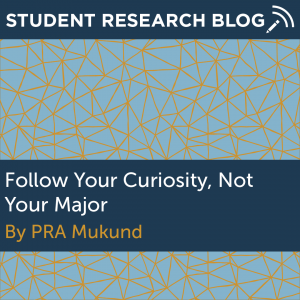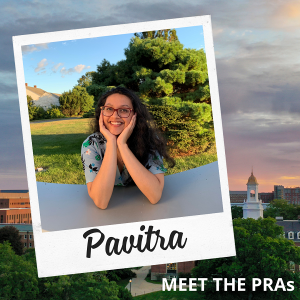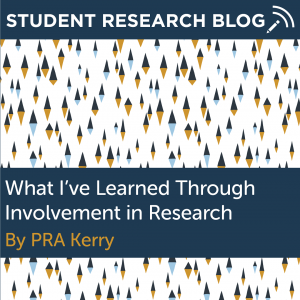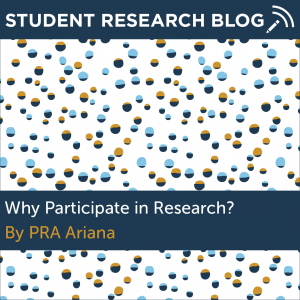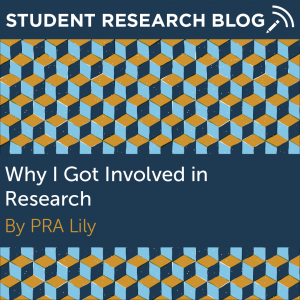Meet Claire Fresher ’22, an OUR Peer Research Ambassador (PRA) majoring in Mechanical Engineering and minoring in Mathematics.
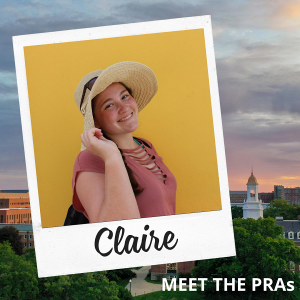 What is the focus of your research?
What is the focus of your research?
In my engineering lab I work on analyzing metabolites that undergo aggregation in the body which is linked to the development of various diseases. I work on ways to characterize the self-assembly of metabolites in the body through analysis of simulations and construction of molecular models. In my psychology lab I administer neuropsychological assessments to families to test the effects of environmental and genetic factors on cognitive development skills like language, math, and reading comprehension.
Why did you get involved in research?
I got involved in research because I wanted to pursue my specific interests in engineering and psychology. I wanted to take advantage of the opportunity to discover new knowledge and expand my skillset. I also wanted to gain hands-on experience in order to get an in-depth knowledge of the topics I investigated. I was also able to work closely with faculty mentors which allowed me to be challenged and think in new ways.
What advice would you give to incoming first-year students?
To incoming freshmen, I would say to not be scared of research and research professors. Everyone started from somewhere so start with finding out what you find most interesting and what you want to put your time and energy into learning more about. After you find your passion everything else with fall into place with a little hard work and help from mentors.
What do you enjoy the most about participating in research?
I enjoy working with my research groups and mentors the most. I have found that I can really lean on my research team when I don’t understand things or need help when I’m stuck on something. I think working with other people has also helped me to develop my own leadership and research skills since I learned from others and then implemented what they taught me in my own approach.
Describe the impact your research experience has had on you.
Research has made me a more independent and analytic thinker. I pushed myself in research to explore new topics and think outside the box which helped me to become a better student and problem solver. It has also made me more curious in the fields I study. Research has taught me to question things I don’t understand and explore more topics to give myself a better overall view.
Click here for more information on Claire and other OUR Peer Research Ambassadors.
